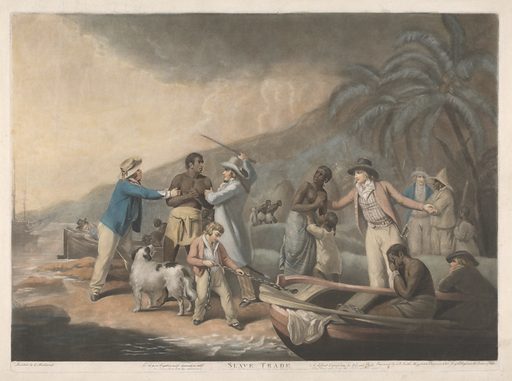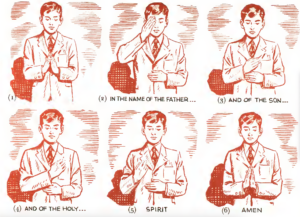
The short answer is no with an asterisk. Something that has to be considered is the Bible isn’t a declaration but the recording of an unfolding revelation. Due to this, there are a few things to consider.
Firstly, If you read the laws regarding slaves the Bible never says that this is good or pleases good. This is because God isn’t promoting slavery. He is tailoring the law to where the Israelites are. It isn’t an allowance but a compromise. When God brought the Jews out of Egypt they were asked to essentially change the very essence of their way of life. They went from following multiple Gods to following the commands of the living God and they struggled to do that. If they can’t even follow a singular God who has proven his power how could the Jews have been expected to abolish cultural norms of the time? Instead, God decided that it was better to meet them halfway by not abolishing slavery but rather creating rules on how slaves were to be treated.
The second thing to consider is that slavery in the Old Testament often was not the same as what probably comes to our minds today. Slavery in the Old Testament would have been closer to what we know as indentured servitude. In the slavery in question the enslaved essentially sold themselves for a limited period of time to receive subsistence or to pay a debt. In the type of enslavement we’re familiar with, the enslaved are kidnapped and sold against their will. This type of slavery is explicitly forbidden by the Levitical law. “He that shall steal a man, and sell him, being convicted of guilt, shall be put to death.” ¹. If we were to assume the bible promotes slavery in the modern context we would have to assume that the bible also speaks against its own laws.
Further support can be found near the end of Genesis. “Why therefore shall we die before thy eyes? we will be thine, both we and our lands: buy us to be the king’s servants, and give us seed, lest for want of tillers the land be turned into a wilderness.”². We can see here that the soon to be enslaved here were not kidnapped but rather sold themselves of their own free will.
Now we do have to contend with the enslavement of the Canaanites.³ There are many possible theories on why the Israelites didn’t wipe out the Canaanites. However, as far as if their enslavement was against Levitical law we must remember that this enslavement was not one for financial gain. Exodus 21:16 was against kidnapping people for financial incentive. The enslavement of the Canaanites was a punishment for sacrificing their children to idols. This is not inherently immoral. That’s not to say that there was not still a need to treat the slaves morally.
All this being said, remember that this was early on in the revelation that would be Christ’s sacrifice. As the revelation continued man’s understanding of the revelation grew eventually culminating in the ultimate command of Christ. “Jesus said to him: Thou shalt love the Lord thy God with thy whole heart, and with thy whole soul, and with thy whole mind. This is the greatest and the first commandment. And the second is like to this: Thou shalt love thy neighbour as thyself. On these two commandments dependeth the whole law and the prophets.” ⁴
Slavery didn’t suddenly become wrong because God changed his mind. Rather humanity was ready for the revelation that it was always immoral. A big part of God’s plan is guiding humanity in its fallen nature without to impeding on free will. That being said these two commandments are the groundwork through which we view the new covenant.
Under the second commandment given by Christ can a Christian society have slavery? Is not the essence of any kind of slavery the viewing of one as less than yourself? Yet, under the new covenant, we are to be equals. The Catechism’s stance on slavery is “It is a sin against the dignity of persons and their fundamental rights to reduce them by violence to their productive value or to a source of profit. St. Paul directed a Christian master to treat his Christian slave “no longer as a slave but more than a slave, as a beloved brother, . . . both in the flesh and in the Lord.”⁵
¹Exodus 21:16
²Genesis 47:19
³Joshua 17:12–13
⁴Matthew 22:37-40
⁵CCC 2414

 First Sorrow: Mary Hears the prophecy of Simeon in the Temple
First Sorrow: Mary Hears the prophecy of Simeon in the Temple Second Sorrow: Mary flees with Joseph into Egypt to save Jesus
Second Sorrow: Mary flees with Joseph into Egypt to save Jesus Third Sorrow: Mary loses Jesus and finds Him again in the Temple
Third Sorrow: Mary loses Jesus and finds Him again in the Temple Fourth Sorrow: Mary meets Jesus carrying the cross on the way to Calvary
Fourth Sorrow: Mary meets Jesus carrying the cross on the way to Calvary Fifth Sorrow: Mary is present at the Crucifixion and Death of Jesus
Fifth Sorrow: Mary is present at the Crucifixion and Death of Jesus Sixth Sorrow: Mary receives the dead body of Jesus in her arms
Sixth Sorrow: Mary receives the dead body of Jesus in her arms Seventh Sorrow: Mary accompanies Jesus to His Burial
Seventh Sorrow: Mary accompanies Jesus to His Burial
I was able to easily login with the ggpanalologin site. I played a few games and was able to enjoy it. The site is secure also and easy to navigate. ggpanalologin
Heard about 9rbettelegram through a buddy. Using Telegram for updates and deals? Smart move. Makes it super easy to stay in the loop. Worth joining: 9rbettelegram
Big Mumbai Login Bet caught my eye. Worth a look if you’re into the scene. Check it out here: bigmumbailoginbet and tell me what you think!
Yo, 666casino, I’ve been playin’ here for a bit. It’s alright, nothin’ crazy special, but consistently good. Solid choice if you’re lookin’ for a trusted site. 666casino